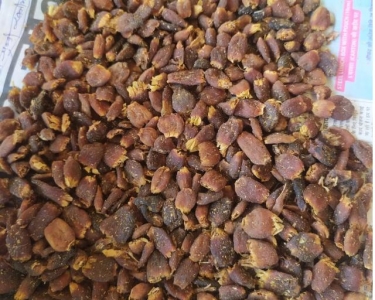Live animals
Couldn't find the product you want?
Fill out this form to request the product.
Products You May Like
Export from Micronesia
Micronesia is a subregion of Oceania, comprising thousands of small islands in the western Pacific Ocean. It has a shared cultural history with two other island regions, Polynesia to the east and Melanesia to the south.
The economic activity of the Federated States of Micronesia consists primarily of subsistence agriculture and fishing. The islands have few mineral deposits worth exploiting, except for high-grade phosphate.
Major Micronesia exports are: frozen fish, fish fillet, meat, fishing vessels, yachts, knotted netting of twine, cordage or rope, paper, molluscs.
Major export partners of Micronesia: Thailand, China, Japan, Korea, Rep., Philippines, United States.
The fishing industry is highly important. Foreign commercial fishing fleets pay over $20 million annually for the right to operate in FSM territorial waters. These licensing fees account for nearly 30% of domestic budgetary revenue. Additionally, exports of marine products, mainly reexports of fish to Japan, account for nearly 85% of export revenue. Copra production used to be a more significant source of income, however, world prices have dropped in part to large palm plantations that are now planted in places like Borneo.
Import to Micronesia
The Federated States of Micronesia (FSM) consist of 607 islands. Micronesia is a member of the Pacific Island Countries Trade Agreement (PICTA) and the South Pacific Regional Trade and Economic Cooperation Agreement (SPARTECA).
Micronesia's import taxes are among the lowest in the Pacific.
Main imports of Micronesia are food, manufactured goods and machinery and equipment, and namely: petroleum oils, rice, poultry, prepared or preserved fish, fishing rods, shooting equipment, cement.
Major import partners of Micronesia: United States, Korea Rep., Japan, Philippines, China, Australia, Thailand. Australia is one of FSM's main sources of imports after the US and Japan.
Due to its geographical situation, the country is exposed to typhoons, and there is a danger for agricultural produce. Economic activity consists largely of subsistence farming and fishing, and government, which employs two-thirds of the adult working population.
Check Out Export Portal: A Site That Lets You Export Live Animals
If you are looking to buy and export animals, then you came to the right place! Export Portal's Live Animals Department is an online marketplace for sellers and buyers of any livestock. We work to contribute to the live export industry, which brings many economic advantages and other benefits to countries that rely heavily on livestock imports. In fact, in just Australia alone, this industry contributes roughly $1.8 billion to the country's GDP each year. Moreover, it also ensures food security while helping people meet their protein needs as well.
Finding the Right Animal
We feature a wide range of pigs, cows, sheep, goats, horses, rabbits and hares, turkeys, bees, and fish for sale. An increasing number of American, Australian, German, South African, Argentinian, and Italian farmers and companies are advertising their livestock with Export Portal, portraying just how effective and helpful our site is.
To help customers make more informed purchasing decisions, our site lets users narrow down their searches by the age, breed, and sex of the animal. If you are feeling hesitant to shop on our site and want more detailed information, make sure to check out our seller ratings and reviews, which are written by our buyers and customers. We also collaborate with hundreds of trusted international shipping companies that arrange the transport of all kinds of animals and birds to any country in the world.
Online Shopping is More Simple with Export Portal
Export Portal is an ideal site for everyone who is an avid online shopper. Our convenient options make it easy to find and buy whatever you are looking for. Our seller network from all over the world has everything you need, and our customer support team will make sure you can find it. Our wide assortment of products will be sure to provide you with the best shopping experience. Make sure to check out our site and items today!
Customs requirements of Micronesia
Micronesia Customs and Tax Administration Contacts:
FSM National Government
Website: http://www.fsmgov.org/
Address: P.O. Box PS 54, Palikir, Pohnpei FM 96941
Telephone: (691) 320-5855/2826
Fax: (691) 320-5715
Email: ctahq@mail.fm
Department of Foreign Affairs
Email: foreignaffairs@mail.fm
Phone: 320-2641/2613
The field offices:
Chuuk: (691) 330-2753/4482
Kosrae: (691) 370-3010/3382
Pohnpei: (691) 320-2350/5508
Yap: (691) 350-2272/2419
The Federated States of Micronesia (FSM) is composed of over 600 islands and atolls spanning one million square miles of the western Pacific Ocean. A constitutional democracy, the FSM is a federation of four semi-autonomous states (Chuuk, Kosrae, Pohnpei, and Yap), each of which retains considerable autonomy over domestic affairs, including state civil and criminal justice systems. The federal capital is located at Palikir, on the island of Pohnpei, close to Pohnpei’s largest town, Kolonia.
Each island airport has its own customs and immigration officers. If you plan on visiting several islands on one trip, you will be passing through customs and immigration lines at each stop and filling out the usual paperwork.
All non-citizens, other than visitors of Micronesia must have their entry permits applied for prior to arrival in the FSM. The Entry Permit is necessary to have for individuals whose purpose in entering the FSM is to engage in wholesale or retail sales of goods or services, or for the purpose of taking orders for the purchase of goods or services, without establishing a place of habitation or a place of business within the FSM. This permit is not available to those who otherwise qualify for a foreign investor's permit.
According to data, exporting a standard container of goods requires 5 documents, takes 30 days and costs about $1045.0. Importing the same container of goods requires 6 documents, takes 31 days and costs about $1045.0.
Documents for trading across borders in FSM include the following documents: bill of lading, commercial invoice, customs export declaration, inspection report, packing list, terminal handling receiptes.
Sources:
http://www.fsmgov.org/ngovt.html
http://www.doingbusiness.org/data/exploreeconomies/micronesia/





